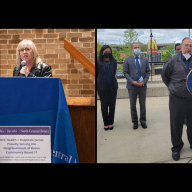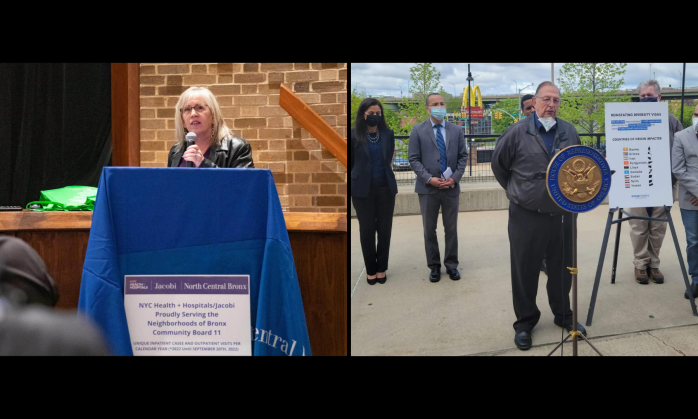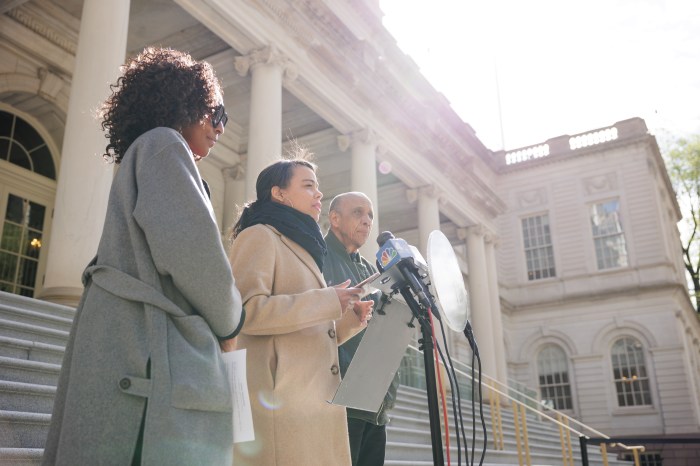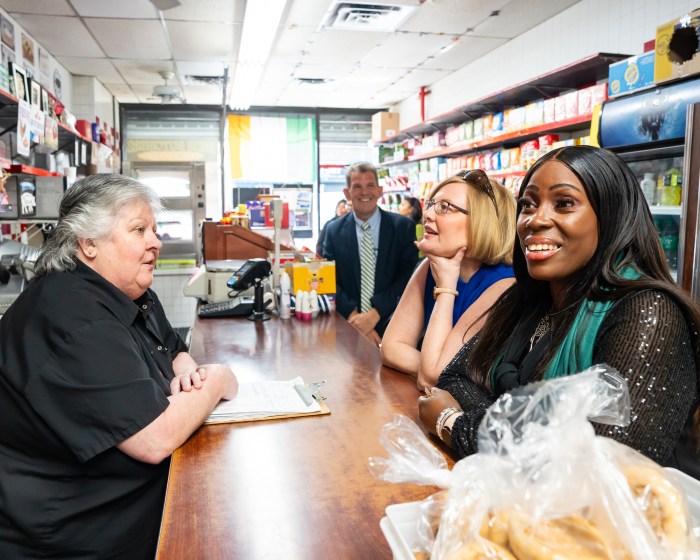As New York State faces a $15 billion budget gap, Senator Jeff Klein, joined by Senator Joe Addabbo, Lottery director Gordon Medenica, Leonie Haimson of Class Size Matters, Kim Sweet of Advocates for Children, and concerned parents, proposed the expansion of gaming options at the state’s existing video lottery facilities with the addition of electronic table games. The proposal would generate a projected $150 million in additional revenue for state education (bill number S.706). There are currently more than 13,000 video lottery gaming machines at horse racing tracks across the state.
Video lottery gaming has seen a robust increase in revenues of 12%, or $73 million in the past year. In fiscal year 2007-08, video lottery gaming produced $875 million, of which more than $480 million was allocated for education. Under Klein’s proposal, when two new video lottery gaming facilities open in 2010 (Aqueduct and Concord), projected revenues could generate up to $275 million more annually for the state’s schools.
Klein emphasized that expanding video lottery gaming under statute to include electronic table games is crucial if New York is to stay competitive with other states, like Pennsylvania and New Jersey, which routinely attract gamblers across borders. In 2007, 23% of the 26,400,000 visitors to Atlantic City were from New York State, each spending on average $550, with a total estimated negative economic impact on New York of $3.3 billion.
The Legislature is currently in the process of reviewing Governor Paterson’s proposed budget which calls for $20.693 billion in school aid-a decrease of $698.34 million or 3.26% less projected spending. New York City would receive $280 million, or 3.76% school less aid. Last year, New York State spent about $22 billion in school aid.
“In these dire fiscal times we need smart solutions that not only maintain essential services, but keep our schools strong. . It is essential that our children get the quality education they deserve which can be accomplished through growing lottery revenue. Today, I am offering a practical, relevant solution that I believe will have a great impact on our children’s future,” said Klein.
“This state cannot afford to balance its budget by cutting further and further into education. We need creative revenue-generating proposals to enable us to make the critical investment in education required for our children’s futures,” said Kim Sweet director of Advocates for Children.
“We are facing huge budget cuts to education of an order not seen since the 1970’s, that will likely increase class sizes dramatically and deprive our children of the opportunities they need to succeed. This will not only severely damage their futures, but the economic future of the city itself. Already this fall, there has been an increase in class size at all grade. We desperately need to prevent any further increases by finding new, innovative sources of revenue that can be targeted towards our schools. This proposal of Senator Klein’s will help to do just that,” said Leonie Haimson, director of Class Size Matters.
In 2001, the state legislature approved video lottery gaming. In 2004, the state Court of Appeals upheld the law and video lottery gaming began at New York’s horse racing tracks, commonly referred to as racinos. Video lottery gaming machines resemble slot machines in appearance and players bet on the outcome of a video game. The machines are programmed so that all players are able to participate in the same game at the same time, just as lottery players have for decades been able to buy lottery tickets and participate in games, like Lotto and Daily Numbers, wherein the outcomes are determined by a random drawing. Examples of new games would include baccarat, roulette, and blackjack among others.
The new electronic table games will operate in the same way and, therefore, satisfy the legal requirements for a lawful lottery game. Each play in a video lottery game will represent an electronic version of a lottery ticket, multiple players will be able to participate at the same time, and the results will be decided by chance.
“We in the State Legislature have the opportunity to explore ways to possibly ease the pain of additional funding and service cuts to our educational system. I believe it is a prudent measure to seize this opportunity during this year’s legislative session and budget process,” added Addabbo.
Klein stressed the importance of passing legislation to expand gaming options so as to incentivize the gaming industry to invest in the necessary technology required to comply with New York’s specific infrastructure. Legislative action would send a clear message to the industry that such an investment would produce a worthwhile return.























